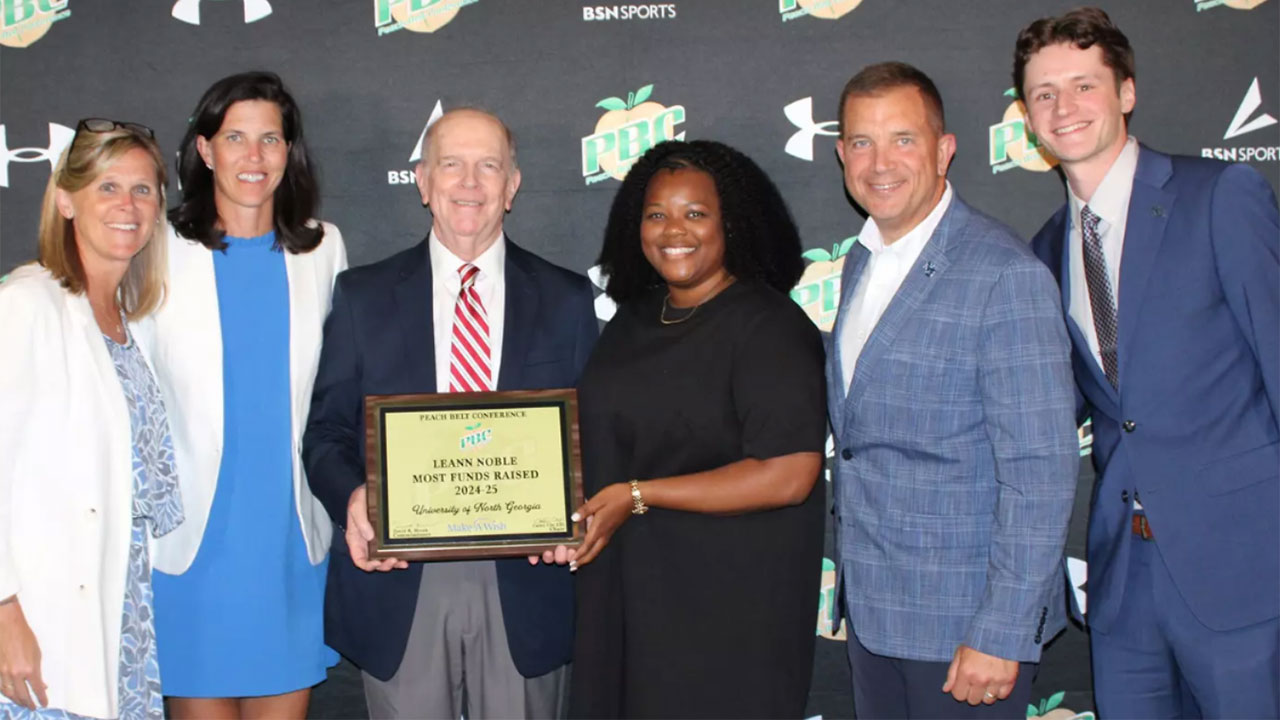Cadets learn basics in AI Literacy course
In an ever-evolving world, almost 240 cadets from the University of North Georgia (UNG) gained valuable insights through an "AI Literacy" course that allowed them to learn the basics of artificial intelligence during the spring semester.
UNG's Center for Teaching, Learning and Leadership (CTLL) organized the effort. Dr. Lindsay Linsky, professor of middle grades education and assistant director of the CTLL, and Dr. Tamirat Abegaz, associate professor of computer science, designed and taught the course. While it was mostly freshmen in the class, some sophomore, junior and senior cadets volunteered to participate.
Paige Priestley, an Oxford, Georgia, resident pursuing a degree in biology, is a member of the Georgia Army National Guard and plans to attend medical school. AI Literacy opened her eyes to how AI could impact her chosen career.
Priestley said AI can be helpful when used the right way by Army officers.
"Technology is improving around the world, and we should embrace it," Priestley said.
Grace McGill, a rising junior who is pursuing a degree in cybersecurity, said the course helped cadets learn how to safely use AI.
"It was a really good idea, and I hope they do it again," McGill, a Senoia, Georgia, resident, said. "It was a good opportunity for those who don't major in computer science or cybersecurity to get in that realm and learn cool stuff about it."
The AI Literacy course ties into UNG's strategic big bet to "deliver the Corps of the future."
"Our cadets should learn about AI and how it functions for both offensive and defensive purposes," Abegaz said.
Retired Col. Bryan Kirk, Institute for Peak Performance director, served as chief of staff for the Cadet Leadership Academy during the spring semester and said UNG's strategy to help cadets learn AI is just starting.
"Our vision is progressively increasing exposure and actual usage of AI from freshman year to senior year," Kirk said.
Linsky is grateful to be part of an effort that is meeting an ever-deepening need, all while helping students understand the good and bad of AI.
"President Shannon is creating a culture of innovation," Linsky said. "It's important that students realize that it's important to get experience with AI for the future workforce."
Latest News
- UNG leads PBC in Make-A-Wish fundraisingUNG received the LeeAnn Noble Make-A-Wish Award for Most Funds Raised at the Peach Belt Conference's annual awards dinner in late May.
- Students, faculty present at psychology conferenceUNG students and faculty presented their research at the annual Southeastern Psychology Association (SEPA) conference in Atlanta in April.
- Kirk will direct Institute for Peak PerformanceRetired Col. Bryan Kirk has been named the inaugural executive director of UNG's Institute for Peak Performance.
- Norsworthy, Miles earn tennis coaching promotionsKent Norsworthy has been promoted to UNG director of tennis and will continue as women's tennis head coach, while Justin Miles is now the men's tennis head coach.
- UNG's arts strategy hits the roadUNG visited a variety of businesses and nonprofits during the June 2-4 Nighthawk Impact Tour, which focused on the strategic big bet to 'accelerate the fine arts and entertainment.'
- UNG earns highest Learfield Cup finish everUNG earned its highest finish in its NCAA Division II history in the 2024-25 Learfield Directors' Cup standings, coming in at 22nd in the nation.













